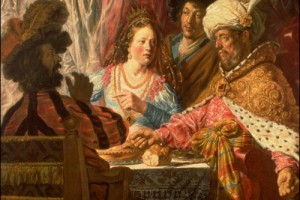In my last post I went through the cultural developments that led to the basis of our modern understanding of authority detailing the historical shift in religious and political viewpoints. Eventually we have come to understand in the modern context a delegated authority that tends to come from the will of the majority of individuals rather than the historical notion of a top-down delegation. Historically the factions that have understood a more top-down delegation were known as conservatives, while those who tended toward the liberty of the individual were characterized as liberal. Those terms have come to be diluted in our modern understanding.
While there are many facets of the terms conservative and liberal (i.e. social, fiscal, and historical), what the terms are generally regarded as now tend to be “the way things were” for conservatives and “the way things ought to be ought to be” for liberals. In fact, liberals in the twentieth century were graced with the term “progressive.”
Unfortunately for the conservative faction, they were portrayed by their opponents as whacko fundamentalists who denied science. They were made to seem ignorant, backwards, and often prejudiced. Adding insult to injury, many of the conservative camp were guilty as charged.The forces of tolerance, education, compassion, progressivism, and the common man all seemed to be aligned on the left. The right had a coalition that seemed far less attractive: big business, organized religion (thought of as regressive at best, oppressive at worst), and the uneducated racial majority made up the visible face of the right. While the left seemed to represent hope, the right seemed to represent fear. And so, in my lifetime, one side has been far more attractive to the uninitiated than the other, but at what cost?
What both sides of the culture wars value is personal autonomy. The left espouses general acceptance of alternative moral behaviors, while the right desires less control by governmental forces in their day-to-day lives. But the basis for personal autonomy has a sustainable future in the hands of one group, and an unsustainable future in the hands of another. The coalition of the right has, perhaps until recently, willingly proclaimed with one voice (with varying levels of sincerity) that the denial of God is tantamount to anarchy. The coalition of the left will never with one voice decry religious belief, but has made a significant place at the table for those who would.
Personal autonomy without deference to a higher power has at its core the possibility of “no limits.” Unlimited personal autonomy is a scary proposition. The natural progression of unlimited autonomy is anarchy. James Madison wrote, “If men were angels, no government would be necessary.” The fact is that we are not all angels, and therefore personal autonomy must be limited, but by what? Is it government? Well, yes, but how so? The founders understood the basis of personal autonomy to be the design of our Creator. The Declaration of Independence and the Federalist Papers are rife with examples. They reasoned together in the milieu of the Reformation as to what Scripture taught about the nature of personal autonomy. What they created in that context was a tolerant society in which men could be free based upon their God-given rights, even if they denied the giver of those rights. But can their masterwork, The Constitution of the United States of America, be sustained in a culture whose inhabitants no longer hold the worldview of its authors?
I don’t know if we have reached such a point. Faith has not been lost in our society, but appealing to God (I use the term in the Judeo-Christian sense) as the basis for our collective decision-making in the United States does seem to be at an all-time low. The handles by which we make decisions for ourselves and who we elect to represent us collectively seem to be self-interest, fear, indifference, and prejudice. Unfortunately, those seem to be characteristics of both sides of the culture wars.
In the short-term, the temptation to live as if there was no God might seem appealing. There is no one to which one must answer, save perhaps his neighbor. But if you can find enough people who want to participate in the action to which your neighbor objects, then your neighbor’s opinion doesn’t matter. A commenter on my last post alluded to this philosophy colloquially known as the “might makes right” stance. Democracy in a godless world then is nothing more than demagoguery, or the majority (usually whipped into a frenzy by a charismatic figurehead) exerting its will on the helpless minority. However, in the long-term, minorities become majorities. The oppressed becomes the oppressor, and their memories are long.
In the long-term, limited autonomy is best served by the self-governed individual. A society who is sincerely self-governed by virtue of its obligation to God answers not only to self-interest, but to divine. From this standpoint arose the greatest advances of our day and age: healthcare, education, civil rights, charitable giving, etc. An individual with minority opinions is treated graciously because of the God-given worth of the individual. The society becomes elitist towards ideas, but egalitarian towards people. There is a common understanding about the idea of common-good. Dissent is tolerated, even if it is not respected. Cultural shifts in God-honoring societies are slow and often self-correcting.
Judeo-Christian societies in history are not without fault, but an honest broad look at history shows clearly that advancements in culture, advances in civil rights and minority rights, the sanctity of individual lives, atrocities against humanity, etc. within Judeo-Christian societies all compare favorably to their historical counterparts.
The exercise of authority clearly lies with the individual, but, practically speaking, when the recognition that God is the basis for individual authority is existent within the individual, both the individual and the society are better served. The opposite is also true. A society that does not favor self-rule by invocation of God is a society given to the moral whims of the day. A society that builds itself upon the strengths of the past with an eye to correct the failures of the past is simply a losing proposition. Daniel Webster once said, “Whatever makes men good Christians, makes them good citizens.”
Since I last wrote my last post, the Supreme Court ruled on two landmark cases that favored same-sex marriage. What I saw from my conservative friends on social media was alarming. There was a strong political response rather that a spiritual one. What our country needs is not a moral majority imposing its worldview on a society increasingly indifferent on traditional moral values. The answer is not better legislation. The answer is a grassroots movement to affect the character of the individuals of the nation in which we live, the world in which we live.
Human beings can be ruled well by a moral individual in a top-down authority structure, but it is an impossible task to rule a nation of those who are morally indifferent when they have the power to elect their rulers. Being a citizen of a well-ruled democracy requires a majority of people who are self-ruled well. Pragmatically, the best way to see a change on a magnitude needed in our culture is revival of faith amongst the populace. Such a revival is always preceded by prayer, personal holiness, and a persistent care to see to the well being of others before one’s own temporal self-interest.




5 Comments
Leave your reply.